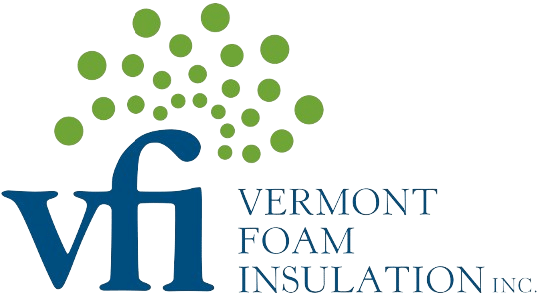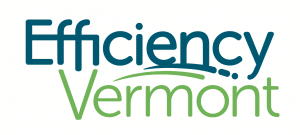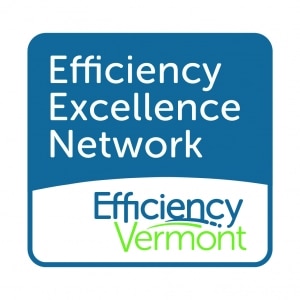Considering an insulation upgrade for your home? If so, we applaud you for taking the first step towards greater home comfort and energy efficiency —you’re on the right path! Insulation reduces heat flow into and out of the home, keeping indoor temperatures more consistent year-round.
Of course, before you insulate, it’s important to determine which type of insulation will be best for your home. We’re here to tell you about the types of insulation we use — and why you might choose one type over the other.
Your Brief Guide to Different Types of Insulation
At Vermont Foam Insulation, we work primarily with two insulation materials to give you the best in home efficiency and comfort: spray foam and cellulose.
Spray Foam
If we were to crown one type of insulation as the “king” of all types of insulation, it would have to be spray foam. Spray foam is one of the the most effective types of insulation on the market, with an R-value of R-6.2 or higher – Ours is over 7. (Remember: the higher the R-value, the more effective the insulation.) Our latest spray foam products source renewable and recycled material, and achieve the highest standards of environmental stewardship.
Spray foam is also unique in that it creates both insulation barrier, an air barrier and a vapor barrier around your living space. It is the only insulation available that can achieve all three. This means that in addition to preventing heat flow through building materials, it also closes up air leaks (such as those around recessed lighting and the attic hatch) and the transmission of moisture. When installed correctly by a professional, spray foam keeps all of that valuable conditioned air inside your living space, right where you want it. Your house will become a draft-free, cozy thermos!
Blown-In Cellulose
Another great option for adding insulation to existing walls is cellulose. Cellulose is equally versatile, as it can be blown into walls through small a hole or into open walls which are netted. This technique is otherwise known as “dense packing.” It may also be applied as a “loose fill,” such as over an attic floor.
Many homeowners choose cellulose because of the environmental benefits it offers. Cellulose is made from recycled newspaper and has been treated to resist mold, pests, and fire. Although it has typically a lower Rvalue than Spray foam, it is less expensive.
Mineral Wool & Fiberglass
Two other insulation materials we work with are mineral wool and fiberglass. Both types are known for their soundproofing qualities and can offer thermal resistance when applied correctly. Fiberglass also tends to be a more affordable insulation option.
There’s No Single “Best” Type of Insulation
As you may have already guessed, there’s no single “best” type of insulation. What you have installed in your home largely depends on the area you are insulating and what your budget and goals are.
You might choose spray foam, for example, if you need to seal air leaks in an attic, insulate a cathedral ceiling or a high humidity area such as the crawl space. You might choose cellulose, on the other hand, if you wish to add loose fill onto the floor of your attic. And fiberglass is a practical way to reduce noise transmission through an interior partition.
We’ll Help You Choose the Right Insulation for Your Needs
The effectiveness of your home’s insulation is highly dependent on the material used and the quality of installation. For this reason, we recommend trusting an experienced professional with your home insulation needs.
If you’re a homeowner in Vermont or New Hampshire and are considering an insulation upgrade for your home, talk to us! We’ll assess the unique needs of your home and design the best possible insulation solution for you.








